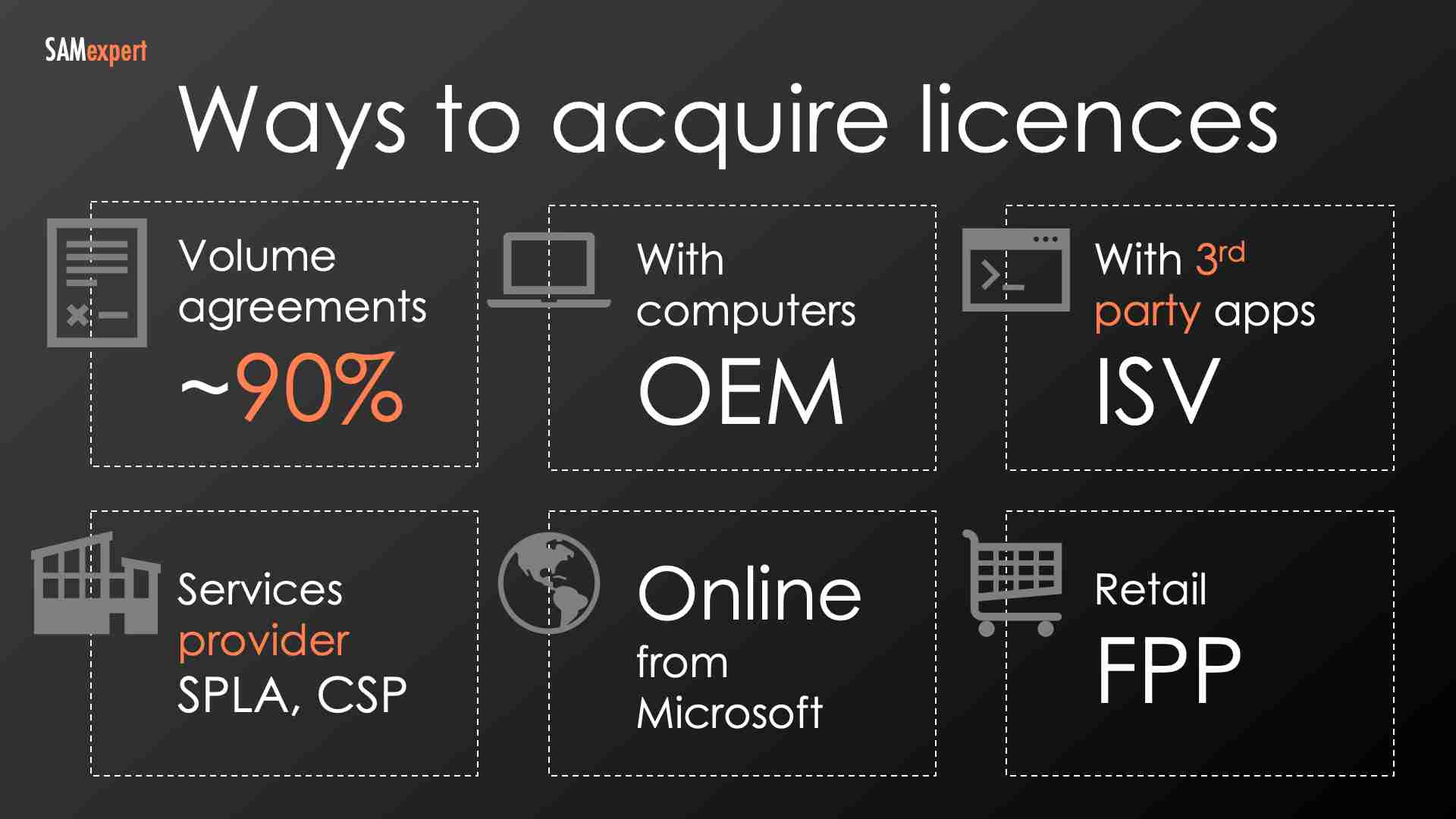Summary
If you're an organisation using Microsoft products, you'll need to purchase licenses for them at some point. But did you know that there are different ways to go about buying those licenses and that each method comes with its own set of terms and conditions?
Large-volume corporate licensing agreements
The most common way to buy Microsoft licenses is through a "volume licensing agreement". This can be an Enterprise Agreement, MPSA, or Open, and these licenses can be used to upgrade existing software or add new software to your systems.

Directly from Microsoft
If your organisation is large enough, Microsoft might offer a direct "Microsoft Customer Agreement for Enterprise" (MCA-E) option. There are no partners in the supply chain. You deal directly with Microsoft.
From a Microsoft CSP partner
Microsoft CSP works similarly to volume licensing agreements. The difference is how the licenses are sold. You may procure them as regular licenses from Microsoft CSP partners. However, these licenses are often sold together with additional "value-added" services by IT companies, outsourcers and service providers, who are also Microsoft CSP partners.
The [sometimes-not-so-subtle] differences between CSP and volume licences are in the licensing terms. Make sure you know these differences when you switch from a volume licensing agreement to CSP.
Licenses pre-installed on computers
Another way to obtain licenses is to purchase computers that come pre-installed with Windows or Windows Server. When you buy laptops, they will most probably come with pre-installed Windows.
These licenses are known as OEM (Original Equipment Manufacturer) and have different licensing terms. For example, they may have limited downgrade rights, which may disallow you from using a previous software version.
Licenses that come with business software
You can also purchase Microsoft SQL Server bundled with other applications, such as accounting or payroll software. These licenses are called ISV Royalty or ISV bundle and have their own licensing rules.
Be sure to check that you have all the necessary papers to ensure that your license is legal. Also, when you have such licenses, do not forget to account for them when you check your licensing compliance or in the event of a Microsoft audit.
Renting from a service provider
Another option is to rent your licenses from a service provider who signed a Service Provider License Agreement (SPLA). Essentially, you will be renting Microsoft software installed in the provider's virtual machines on a monthly basis. The provider will bill you for a complete service, and part of the fee goes towards the license.
It is also true for large cloud providers, including Amazon AWS, Azure, Google Cloud, and Alibaba Cloud.
Off-the-shelf and directly from Microsoft's website
Finally, you can purchase your licenses online using a credit card directly from Microsoft.
You can also procure licenses in a store, off the shelf. However, it's not recommended even for small organisations, as it can result in many headaches when it comes to keeping the collaterals.
Make sure you read the small print
It's worth noting that the way you buy your license can affect the terms of the license. For example, volume licensing agreements provide downgrade rights, while OEM and retail licenses may not. So, it's essential to consider all your options before deciding.
Talk to a Microsoft Licensing expert
There are a few ways to purchase Microsoft licenses for your organisation, including volume licensing agreements, pre-installed on computers, bundled with other software, or through cloud or service providers. Each method has its own specific terms and conditions. Choose the one that best suits your needs.
If you need expert advice from independent consultants not compensated by Microsoft for selling you licenses, please use the form below and let us know your challenges.